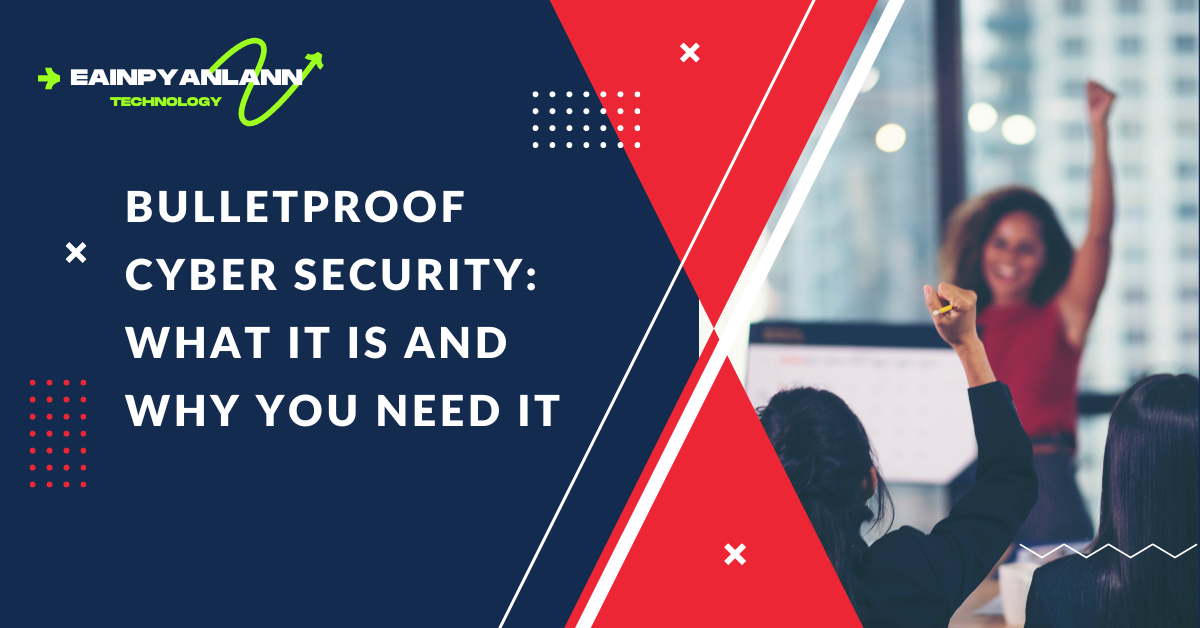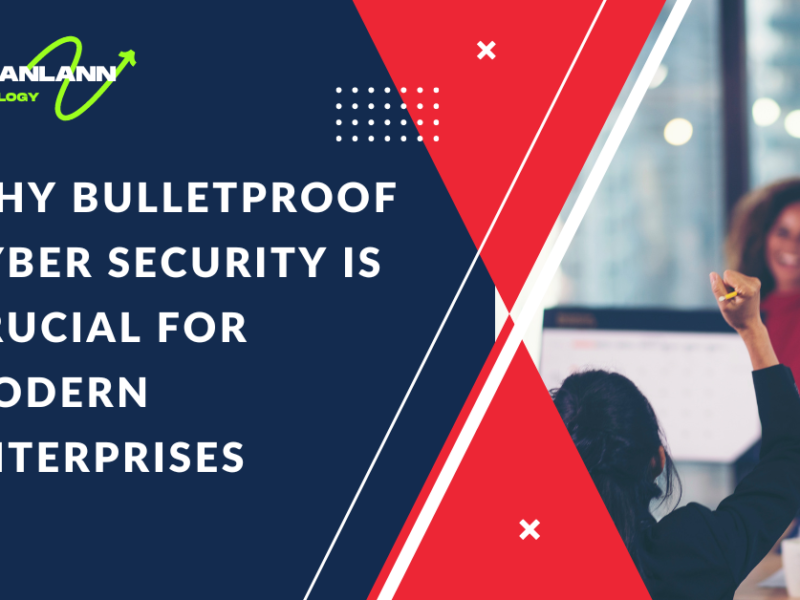In today’s digital age, where cyber threats are increasingly sophisticated and relentless, ensuring bulletproof cyber security is not just an option but a necessity for organizations of all sizes. But what exactly is bulletproof cyber security, and why is it crucial for your business? This guide will explore the concept of bulletproof cyber security, its key components, and the reasons why it is essential for safeguarding your digital assets.

1. Understanding Bulletproof Cyber Security
1.1. Definition and Scope
Bulletproof cyber security refers to a comprehensive and advanced approach to protecting an organization’s digital assets against all forms of cyber threats. It goes beyond traditional security measures by employing a multi-layered defense strategy, incorporating cutting-edge technologies, and implementing proactive measures.
Key characteristics of bulletproof cyber security include:
- Advanced Threat Detection: Utilizing sophisticated tools to identify and respond to emerging threats.
- Proactive Defense: Implementing measures to prevent attacks before they occur.
- Holistic Approach: Addressing all aspects of security, including network, endpoint, data, and application security.
1.2. Why Traditional Security Isn’t Enough
Traditional cyber security measures often rely on basic defenses such as firewalls, antivirus software, and manual monitoring. While these tools provide foundational protection, they may fall short in addressing modern, advanced threats. Bulletproof cyber security addresses these shortcomings by:
- Enhancing Detection Capabilities: Using advanced analytics and AI to identify complex threats.
- Adapting to Evolving Threats: Continuously updating security practices to address new vulnerabilities and attack vectors.
- Comprehensive Coverage: Protecting all layers of the IT environment, from endpoints to cloud services.
2. Key Components of Bulletproof Cyber Security
2.1. Advanced Threat Detection and Response
- Behavioral Analytics: Monitors user and network behavior to detect anomalies indicative of potential threats. This includes tools such as User and Entity Behavior Analytics (UEBA) and Network Traffic Analysis (NTA).
- Artificial Intelligence (AI) and Machine Learning (ML): Employs AI and ML algorithms to analyze large volumes of data, identify patterns, and predict potential threats before they can cause damage.
2.2. Multi-Layered Defense Strategy
- Next-Generation Firewalls: Offers advanced features like deep packet inspection, application control, and integrated threat intelligence.
- Advanced Endpoint Protection: Includes solutions with real-time threat detection, behavioral protection, and automated response capabilities.
2.3. Proactive Risk Management
- Continuous Monitoring: Implements tools and practices for real-time surveillance and detection of security incidents.
- Regular Vulnerability Assessments: Conducts ongoing assessments to identify and address potential vulnerabilities before they can be exploited.
2.4. Comprehensive Data Protection
- Encryption: Ensures data is encrypted both at rest and in transit, protecting it from unauthorized access and breaches.
- Data Loss Prevention (DLP): Monitors and prevents the unauthorized access, use, or transfer of sensitive data.
2.5. Robust Incident Response Planning
- Incident Response Team (IRT): Assembles a dedicated team to manage and respond to security incidents.
- Incident Response Procedures: Develops and maintains detailed procedures for detecting, containing, and recovering from security incidents.
3. Why You Need Bulletproof Cyber Security
3.1. Increasing Complexity of Threats
Cyber threats are becoming more sophisticated, with attackers using advanced techniques such as zero-day exploits, ransomware, and phishing attacks. Bulletproof cyber security provides the advanced tools and strategies needed to defend against these complex threats.
3.2. Protecting Sensitive Data
Organizations handle vast amounts of sensitive data, including personal information, financial records, and intellectual property. Bulletproof cyber security ensures that this data is protected from unauthorized access and breaches, maintaining the integrity and confidentiality of your information.
3.3. Ensuring Business Continuity
Cyber incidents can disrupt business operations, leading to downtime, financial losses, and reputational damage. Implementing bulletproof cyber security helps ensure business continuity by minimizing the risk of disruptions and enabling rapid recovery in the event of an incident.
3.4. Compliance with Regulations
Many industries are subject to stringent data protection regulations, such as GDPR, HIPAA, and CCPA. Bulletproof cyber security helps organizations meet compliance requirements by implementing robust security measures and maintaining thorough documentation of security practices.
3.5. Building Customer Trust
Customers are increasingly concerned about the security of their data. By investing in bulletproof cyber security, organizations can demonstrate their commitment to protecting customer information, thereby building trust and enhancing their reputation.
4. How to Implement Bulletproof Cyber Security
4.1. Assess Your Current Security Posture
Conduct a comprehensive assessment of your existing security measures to identify gaps and areas for improvement. This includes reviewing your threat detection capabilities, risk management practices, and data protection measures.
4.2. Invest in Advanced Security Technologies
Implement advanced security solutions, such as next-generation firewalls, AI-driven threat detection, and comprehensive endpoint protection. Ensure that these technologies are integrated and configured to provide maximum protection.
4.3. Develop and Maintain Security Policies
Establish detailed security policies and procedures that address all aspects of cyber security, including data protection, access control, and incident response. Regularly review and update these policies to reflect changes in the threat landscape and regulatory requirements.
4.4. Train and Educate Employees
Conduct regular training programs to educate employees about cyber security best practices, such as recognizing phishing attempts, using strong passwords, and following safe internet practices. Simulate cyber attacks to test and improve employee response.
4.5. Monitor and Review
Implement continuous monitoring and regular reviews of your security measures to ensure they remain effective. Use threat intelligence feeds, vulnerability scanners, and automated tools to stay informed about emerging threats and vulnerabilities.
Conclusion
Achieving bulletproof cyber security is essential for protecting your organization against the increasingly sophisticated and evolving threat landscape. By understanding what bulletproof cyber security entails, investing in advanced technologies, and implementing comprehensive security measures, you can safeguard your digital assets, ensure business continuity, and build trust with your customers. In a world where cyber threats are a constant and growing concern, bulletproof cyber security is not just a choice but a critical necessity for any organization.




မင်္ဂလာပါ
Thanks
🌷🌹🥀🌻🌼🌸🌺
Mingalarpar